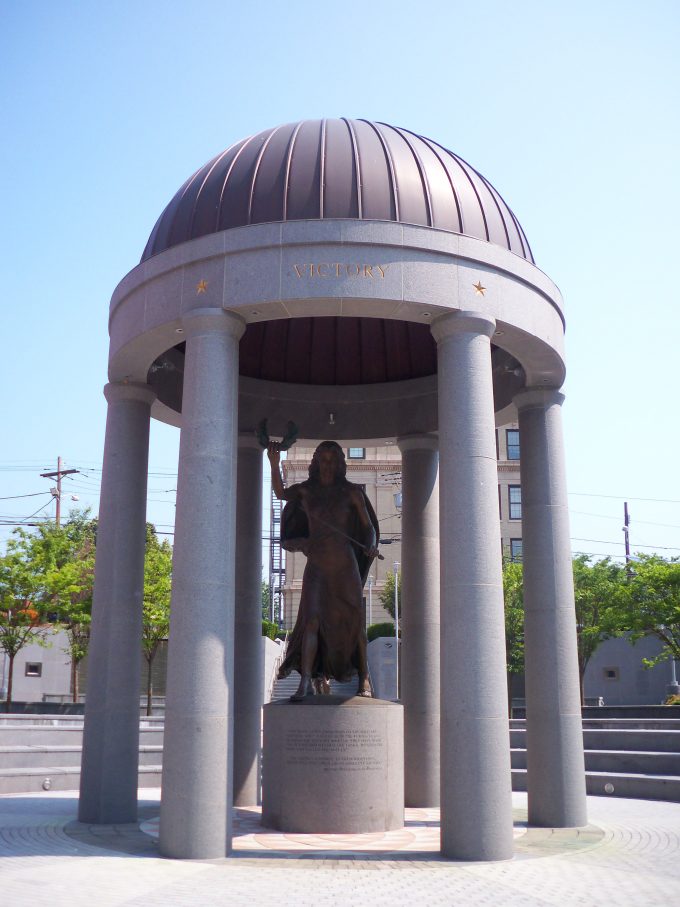
Friday, 5 April 2019
And all these, having obtained a good testimony through faith, did not receive the promise, Hebrews 11:39
The author now sums up the faithful lives of the people he has mentioned, even from verse 11:2. In this verse, he now says, “And all these.” In verse 11:2, they were described as “the elders.” From there, he made a short note about faith in the creation account, and from there he went directly to the faith of Abel and then numerous others. He finally gave a general list of people, not by name, but by how they demonstrated faith. This then is who “all these” is speaking of. Of them, he says, “having obtained a good testimony.”
This is the proper translation of the words, based on the same phrase used in verse 11:2. He had said there that they obtained a good testimony, he then described what that meant in the chapter, and he now repeats that, showing that what he claimed concerning them was accurate. And this was “through faith.”
All of the examples given demonstrated that it was by faith that they had received their good testimony. The author’s consistency of thought, and his ability to sum up his argument, is beautifully laid out.
Finally, despite having obtained this good testimony through faith, he says they “did not receive the promise.” What is the promise he is referring to? It is that of Messiah, and it is of entering into what God has promised through Messiah.
This is completely certain because in Hebrews 6:15 it says of Abraham, “And so, after he had patiently endured, he obtained the promise.” However, Abraham is listed in this chapter and it is said of him (along with all the others) that he did not receive the promise. What Abraham received in 6:15 was the promise of a son who would lead to Messiah, and thus the surety of a multiplication of descendants.
Again, in verse 10:36, it says, “For you have need of endurance, so that after you have done the will of God, you may receive the promise.” Here, he is speaking to those who have trusted in Christ, and who have thus received what Christ promises. And yet, they are still waiting to receive that same promise. What this means then is that there is the reception of the promise as a surety, and yet there is the fact that the promise has not yet been received in reality.
This is what Paul speaks of in his letters. In Ephesians 1, those who have believed in Christ have received God’s promise. And yet, that is only so far as it is assured. The proof of that is the sealing of the Holy Spirit which is a “guarantee of our inheritance until the redemption of the purchased possession, to the praise of His glory” (Ephesians 1:14). We have received the promise, but we are waiting to obtain what we have received. There is no contradiction here. It is all based on the work of Messiah, and it is absolutely guaranteed once it is given by God. Thus, the doctrine of eternal salvation is, once again, on prominent display when properly evaluating what is stated in the word of God.
Life application: The saints of ages past lived by faith in God, but He is a God they couldn’t see, even if they occasionally saw some of His miraculous works. However, their faith wasn’t in vain. They knew the God of Israel is the One true God and it was in Him they placed their hopes. This knowledge wasn’t limited to Israel though. As the prostitute Rahab said –
“And as soon as we heard these things, our hearts melted; neither did there remain any more courage in anyone because of you, for the Lord your God, He is God in heaven above and on earth beneath.” Joshua 2:11
As is apparent from the text, the entire city of Jericho understood who they were up against, and yet only Rahab replaced the head-knowledge with faith. Because of this, she became known as one of the faithful of all times. However, she – along with all the others of the Old Testament – despite receiving commendation for their faith, has not yet received the promise. The coming verse explains why, but try to remember this when you are facing a long-term illness, years of praying for something that seems to never come about, or any of a host of other things which seem to never happen.
These people waited their whole lives, and have continued to wait thousands of years in whatever interim state exists for them, for a promise yet to come. How much more then should we wait patiently upon the Lord and His good timing.
Lord, it certainly is hard for us to wait. We are so used to eating three times a day that when we miss a meal we really feel it. We are used to seeing the sunrise come with regularity. Each new day becomes one less ahead of us. Help us to be patient, even as our days slip past, waiting on Your good timing for all things. In Jesus spectacular name we pray. Amen.




